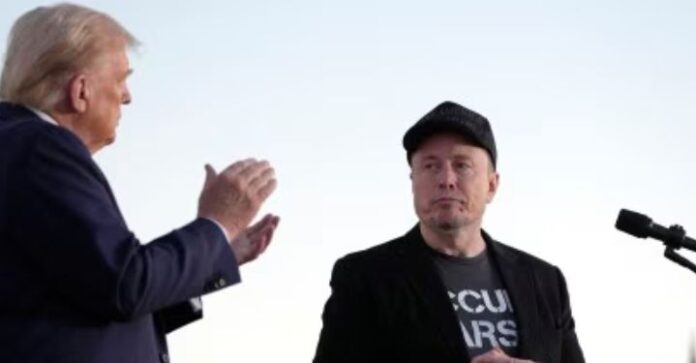Elon Musk, CEO of Tesla and SpaceX, has officially ended his short-lived tenure as a Special Government Employee (SGE) under the Trump administration, concluding his leadership of the Department of Government Efficiency (DOGE). The move comes amid mounting tension between Musk’s fiscally conservative reform agenda and the administration’s expansive spending policies.
Appointed in early 2024, Musk was brought in to revamp federal operations and root out wasteful government spending. With a mandate to apply Silicon Valley-style disruption to bureaucracy, he quickly made headlines by shuttering federal agencies, cutting diversity and inclusion initiatives, and pushing for large-scale operational reforms.
Musk’s early ambitions were nothing short of sweeping: he pledged to reduce government spending by $2 trillion over a decade. This goal was later moderated to $150 billion in projected savings by 2026, due to political pushback and logistical hurdles. While critics accused Musk of targeting essential programs, supporters praised his data-driven approach and willingness to take on entrenched interests.
Despite early momentum, the relationship between Musk and the White House began to sour over the past few months. At the center of the fallout was the administration’s “One Big Beautiful Bill” — a sweeping omnibus package filled with tax cuts, infrastructure spending, and military expansion. Musk criticized the bill as “bloated,” warning it would negate much of the progress DOGE had made in trimming waste.
“The bill might be beautiful to some, but it’s a fiscal eyesore to anyone concerned with budget discipline,” Musk wrote on X (formerly Twitter).
White House aides reportedly viewed Musk’s dissent as disloyal and disruptive. Although President Trump publicly called Musk “a patriot” and “a great American innovator,” behind closed doors, tensions escalated. Sources within the administration say there was growing discomfort over Musk’s influence and his unfiltered public commentary.
Musk’s exit was made official in a brief government filing, which cited the natural expiration of his temporary SGE status. However, multiple insiders confirm that his departure was accelerated by policy disagreements and a mutual understanding that his role had become untenable.
In a farewell memo to DOGE staff, Musk expressed pride in what the department accomplished and encouraged them to continue pursuing “lean government.” He also hinted at a broader critique of the current political landscape.
“Our work showed what’s possible when innovation meets governance. But lasting reform needs courage, consistency, and above all, alignment between mission and leadership,” the memo read.
Political analysts are divided on the impact of Musk’s departure. Some believe it marks the end of DOGE’s relevance, suggesting that without its high-profile leader, the agency may quietly fade. Others argue that the reforms Musk initiated will outlast him, and that his presence proved the potential for outsider influence in Washington.
Meanwhile, Musk’s political entanglements have had ripple effects in the corporate world. His alignment with Trump-era policies has sparked backlash from progressive consumers and investors, with reports of slowed Tesla sales in certain markets. While he remains popular among conservative voters, Wall Street has become wary of the unpredictable effects of his political activism.
At a recent tech summit in Austin, Musk hinted at a return to focusing on product innovation and interplanetary exploration. “There’s only so much one person can do to change government from the inside,” he said. “I think it’s time to build the future from the outside again.”
Musk’s exit also raises questions about Trump’s broader strategy of appointing private-sector figures to top government roles. While initially hailed as a novel approach, critics now argue that such appointments often lead to friction, culture clashes, and premature departures.
The White House has yet to name a replacement for Musk at DOGE. Insiders suggest that the department may be restructured, or even absorbed into the Office of Management and Budget.
Regardless of DOGE’s future, Musk’s foray into government leaves a complex legacy — one marked by bold reforms, ideological conflict, and a deepening divide between technocratic idealism and political pragmatism.

